2024 PROLAB awardees announced
This year’s Promoting Research Opportunities for Latin American Biochemists, or PROLAB, travel grants go to 10 doctoral students, postdoctoral fellows and early-career scientists from Argentina, Brazil and Chile. Grantees will work in labs across Canada and the United States.
Since 2012, the American Society for Biochemistry and Molecular Biology, the Pan-American Society for Biochemistry and Molecular Biology and the International Union for Biochemistry and Molecular Biology have awarded PROLAB research grants to 113 biochemists. The program welcomes applicants from Argentina, Brazil, Chile, Peru, Uruguay, Cuba, Panama, Mexico, Spain and Portugal. The awards support researcher travel and related expenses.
The 2024 recipients are:
María Rodríguez
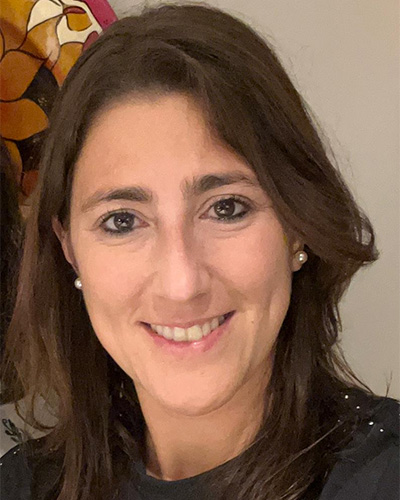
Project title: Analysis of potent active compounds produced by Lacticaseibacillus rhamnosus CRL 2244 for fighting Carbapenem-resistant Acinetobacter baumannii
María Rodríguez is a postdoctoral scholar at the Universidad de Buenos Aires, Argentina. She investigates antimicrobial resistance mechanisms in pathogens, such as Acinetobacter baumannii.
Rodríguez earned her undergraduate, master’s and doctoral degrees in biological sciences from the Universidad de Tucumán, Argentina. In 2021, she received a fellowship to conduct research at California State University, Fullerton.
Rodríguez will conduct her PROLAB research at CSF in the laboratory of Maria Soledad Ramirez, a professor of biological sciences. This lab focuses on developing molecular techniques to optimize the accurate identification of any new and emerging pathogens.
“I am very grateful to have been selected for the PROLAB award, as it represents an important recognition of my work and dedication to science,” Rodríguez said. “This grant will provide me with an invaluable opportunity to advance my professional career.”
Natalia Martinez–Koteski
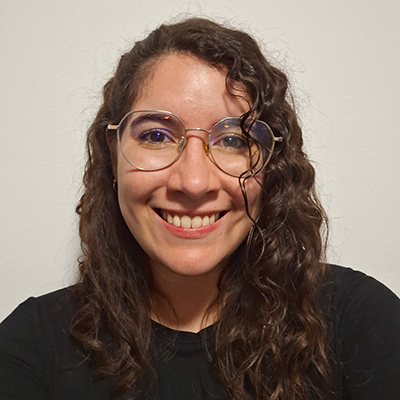
Project title: Role of gangliosides in modulating electrical properties of breast cancer
Natalia Martinez–Koteski is a chemical sciences Ph.D. student at the Universidad Nacional de Córdoba, Argentina. She conducts research with professor Gerardo Fidelio and assistant professor Alejandro Vilcaes on the synthesis and expression of sialyl glycolipids in malignant tumors.
Martinez–Koteski received her undergraduate and master’s degrees in genetics from the Universidad Nacional de Misiones in Argentina. She is also an assistant professor of chemistry, biotechnology, biochemistry and pharmaceutical sciences at UNC.
Martinez–Koteski will complete her PROLAB research in the laboratory of Natali Chanaday, an assistant professor of physiology at the University of Pennsylvania Perelman School of Medicine. The Chanaday lab uses molecular and pharmacological tools, live fluorescence imaging and electrophysiology of cultured neurons to investigate the regulation of neurotransmitter release and synaptic vesicle recycling.
“This award will grant me access to state-of-the-art facilities and resources that are not available at my home institution and will allow me to acquire new technical skills and methodologies that are crucial for the development of my doctoral thesis,” Martinez–Koteski said. “With this opportunity, I will be able to acquire new insights in breast cancer biology, that otherwise would be really difficult to achieve in Argentina.”
Camila Centeno Camean
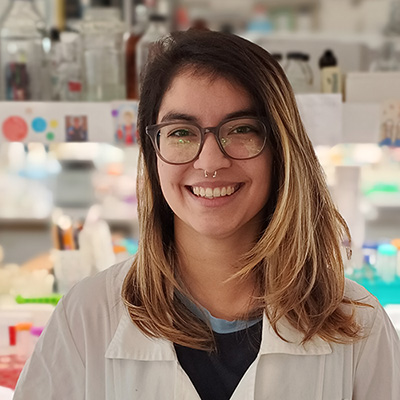
Project title: Functional study of proteins with CesT-like domains in trypanosomatids
Camila Centeno Camean is a Ph.D. student at the Instituto de Investigaciones Biotecnológicas in Argentina, working with investigator Carlos Buscaglia. She conducts research on the structure and function of trypanosomatids’ protein domains that exhibit structural homology with bacterial chaperones.
Centeno earned an undergraduate and master’s degree in biotechnology, investigating the function of the CesT protein domains in trypanosomatids, from the Universidad Nacional de San Martín, Columbia. She is a lab assistant for the general genetics course and performed PCR testing on patient samples during the COVID-19 pandemic.
Centeno will conduct her PROLAB research with Noelia Lander, an assistant professor of biological sciences at the University of Cincinnati, Ohio. The Lander lab investigates signal transduction pathways in in trypanosomes, the class of parasites that can cause sleeping sickness or Chagas disease.
“This experience will not only improve my scientific expertise but also expand my cultural horizons,” Centeno said. “Additionally, the current situation of science in Argentina is quite complicated due to the new government's policies, making resources and funding for research increasingly scarce. Having the opportunity to carry out part of my research in the U.S. will significantly help me complete my doctoral studies on time and ensure the quality of my work.”
Oriana Benzi Juncos
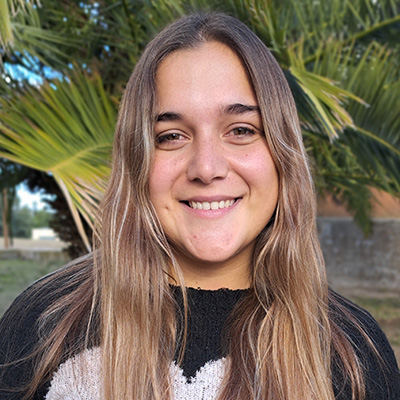
Project title: Understanding the role of microglia in neurotoxicity by using cutting-edge methodological approaches
Oriana Nicole Benzi Juncos is a Ph.D. student at the Universidad Nacional del Sur, Argentina. Benzi Juncos conducts research on the role of specialized proresolving lipid mediators in neuron–glia communication associated with neurotoxicity events.
Benzi Juncos obtained her undergraduate and master’s degree at UNS in biochemistry. She has been a teaching assistant for an undergraduate biochemistry course for the last three years. In addition, Benzi Juncos served on the Biochemistry Curricular Commission at UNS.
Benzi Juncos will work with Simonetta Sipione, a professor of pharmacology at the University of Alberta, for her PROLAB research experience. The Sipione lab focuses on understanding the molecular mechanisms underlying neurodegenerative disorders, such as Huntington's disease and Parkinson's disease, to develop effective treatments.
“The most exciting part of traveling to Dr. Sipione’s lab in Edmonton, Alberta, is the possibility of meeting a group of outstanding scientists in the neuroscientific field, such as Dr. Sipione and her research team,” Benzi Juncos said. “The international atmosphere will enrich both my personal and professional growth, and the opportunity to work in a place with a language barrier will mean a challenge for me that I am excited to face. … It will be my first abroad experience, and I am sure it will be a very enriching one, improving both my sociocultural and professional competencies.”
Cyndi Tabilo Agurto
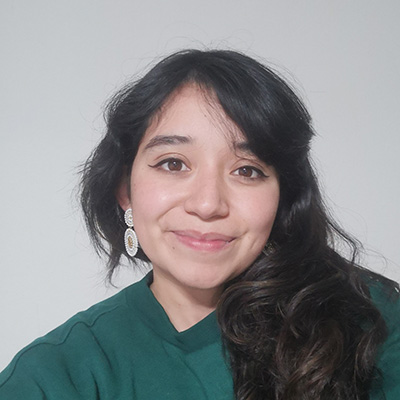
Project title: Ancestral reconstruction of NusG family focused on the metamorphic protein RfaH of Escherichia coli, involving in silico, in vitro and in vivo experiments
Cyndi Tabilo Agurto is a biological and biomedical engineering Ph.D. student at the Pontificia Universidad Católica de Chile. She conducts research on how protein folding regulates cellular functions with César A. Ramírez–Sarmiento, an associate professor of biological and medical engineering at UC Chile.
Tabilo obtained a bachelor’s degree in natural sciences and mathematics from UC Chile. As an undergraduate she received an academic excellence award, and she has served as a teaching assistant for many courses, including cell biology.
For her PROLAB stay, Tabilo will conduct research in the laboratory of Irina Artsimovitch, a professor of microbiology at Ohio State University. The Artsimovitch lab uses biochemical, biophysical, computational and genetic approaches to elucidate the mechanism of catalysis, understand how accessory protein factors modulate RNA polymerase and identify antibacterial and antiviral small molecules.
“I’m truly honored and grateful to receive this award,” Tabilo said. “The PROLAB award is a validation of the effort I have put into my research so far. This was not the first time I applied, and I understand how competitive the selection process is, so I am very proud of this recognition and the opportunity to continue growing as a scientist. This recognition increased my confidence in the potential impact of my work. I look forward to taking the next steps in my research, thanks to this award.
Candelaria Gonzales Moreno
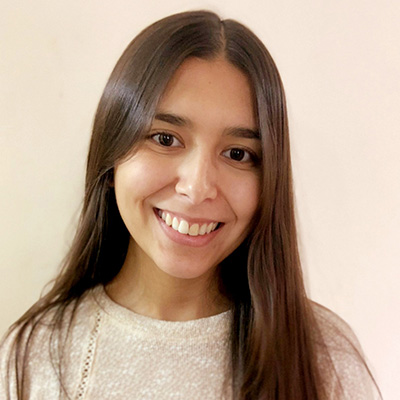
Project title: Establishing a model to study paraquat-induced Parkinsonian phenotypes in Caenorhabditis elegans
Candelaria Gonzales Moreno is a Ph.D. student at the Instituto de Farmacología Experimental de Córdoba, or IFEC, Argentina. She works with professor Miriam Beatriz Virgolini to investigate the mechanisms that underlie lead and ethanol toxicity during development. The lab is also interested in the effects of pesticides on the etiology of Parkinson’s disease.
Gonzales obtained her undergraduate and master’s degrees in biotechnology from the National Universidad de Córdoba, or UNC, Argentina. Gonzales is a lecturer at UNC for courses on toxicology and pharmaceutical biotechnologies.
Gonzales will conduct her PROLAB research in the lab of Luisa Cochella, an assistant professor of molecular biology and genetics at Johns Hopkins University School of Medicine. The Cochella lab investigates the transcriptional and post-transcriptional pathways that regulate cell diversification using Caenorhabditis elegans as a model organism.
“Being selected for the PROLAB scholarship means a lot to me professionally as well as personally,” Gonzales said. “I value very much the opportunity to learn from laboratories that use cutting-edge techniques in prestigious universities with years of experience in the area. I am very grateful to Dr. Luisa Cochella and her team for hosting me in their lab and also to ASBMB for making this possible.”
Daniel Careno
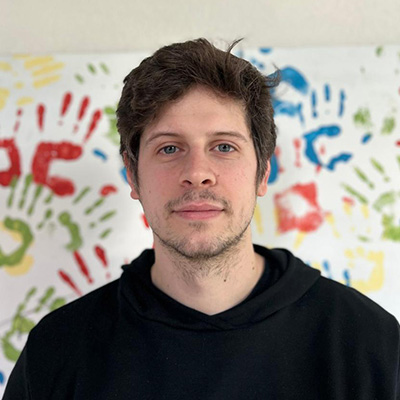
Project title: The role of RNA translation repression in the control of circadian rhythms
Daniel Careno is a biological sciences Ph.D. student at the Universidad de Buenos Aires, Argentina. He investigates the role of post-translational regulation in plant circadian rhythms in the lab of Marcelo Yanovsky, a Pew fellow and principal investigator of plant developmental genomics at the Biochemical Research Institute of Buenos Aires.
Careno earned an undergraduate and master’s degree in data mining and knowledge discovery from UBA. In addition, he recently received a scholarship to conduct research as a visiting scholar at the University of Bielefeld, Germany.
For his PROLAB award, Careno will conduct research with Ariel Bazzini, an associate investigator at the Stowers Institute for Medical Research. Bazzini’s lab seeks to understand the role of post-transcriptional regulation during vertebrate and human development as well as the mechanisms underlying messenger RNA translation and stability.
“The U.S. is a leading country in scientific innovation, and I am excited to be part of this research community,” Careno said. “The agile and dynamic working culture in U.S. labs fosters creativity and rapid progress. Being immersed in such an environment will undoubtedly be a transformative experience for my career.”
Sofía Suárez
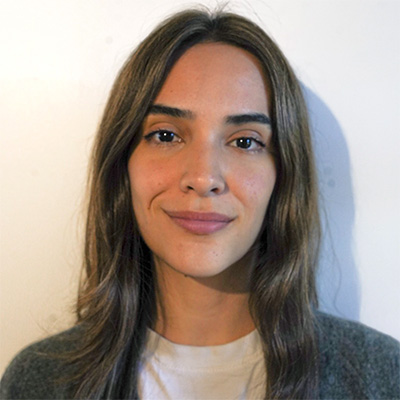
Project title: The role of the immunophilin FKBP8 in regulated exocytosis of mammalian neutrophils
Sofía Suárez is a Ph.D. student at the Universidad de Buenos Aires, Argentina. She conducts research with Pablo Wappner, a professor of molecular and cellular biology and head of the Genetics and Molecular Physiology Laboratory at UBA. Suárez’s research focuses on defining the molecular mechanisms that underlie the secretory pathway and autophagy using Drosophila as a model system.
Suárez obtained undergraduate and master’s degrees in biological sciences from UBA. She has participated in many science outreach activities including public outreach events at the Leloir Institute Foundation, a nonprofit research center in Argentina dedicated to training young scientists.
For her PROLAB stay, Suárez will join the lab of Sergio Catz, a professor of molecular cellular biology at Scripps Research in La Jolla, California. The Catz lab investigates vesicular trafficking, innate immunity and inflammation to develop therapeutics for diseases caused by defects in trafficking, such as diabetes age-related macular degeneration and lysosomal storage disorders.
“Getting this internship is very exciting due to the opportunity to immerse myself in cutting-edge research and contribute to scientific advancements firsthand,” Suárez said. “Being in such an environment will offer me the chance to learn from experts in the neutrophil field and explore the latest technologies and methodologies. Additionally, the collaborative nature of this research will allow me to exchange ideas and gain new perspectives.”
Miguel Ángel Peláez
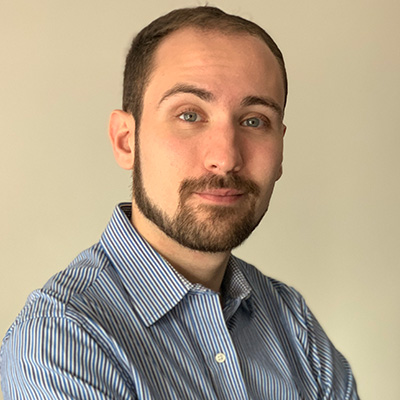
Project title: Tacaribe arenavirus infection model and its use to explore antiviral activity of Junín virus inhibitors
Miguel Ángel Peláez is a Ph.D. student at the Universidad de Buenos Aires, Argentina in the laboratory of Cybele C. Garcia. Peláez is particularly interested in how environmental pollutants impact host–pathogen interactions.
He earned his undergraduate and master’s degrees in biology at UBA, while investigating the role of aryl hydrocarbon receptor during Junín virus infection. Peláez is also interested in science communication and has participated in many science outreach events.
Peláez will spend his PROLAB stay in the laboratory of Brian Gowen, a research professor of animal, dairy and veterinary sciences at Utah State University. The Gowen lab focuses on arenaviral and bunyaviral hemorrhagic fever viruses and developing therapeutics to prevent and treat the diseases they cause.
“The scientific landscape of Argentina has been gradually eroding in the last few years due to economic instability and currency exchange rates,” Peláez said. “This situation makes the acquisition of resources to perform quality research a competitive task. … I am overjoyed about the possibility of performing a short-term research stay at Utah State University, and I am also proud of representing my country on the international scientific scene.”
Yara Lins Rocha
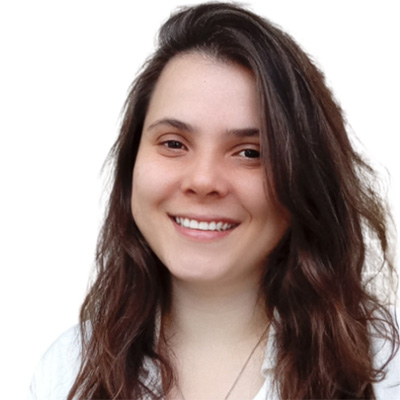
Project title: NMR study of the catalytic efficiency and allosteric sites of antibiotic-resistant β-lactamase enzymes
Yara Lins Rocha is a Ph.D. student in chemistry at the Universidade Estadual de Campinas, or UNICAMP, in São Paulo, Brazil. She conducts research on OXAs enzyme evolution with principal investigator Fabio Cesar Gozzo and associate professor Denize Favaro at UNICAMP.
Lins obtained a bachelor’s degree and a master’s degree in chemistry from the Universidade Federal do Amazonas, Brazil. She has also completed a teaching internship at UNICAMP, during which she taught experimental organic chemistry and biochemistry courses.
Lins will spend her PROLAB research stay with Kevin Gardner, a professor of chemistry and biochemistry at the City College of New York. Gardner’s lab investigates the signaling mechanisms that cells use to sense and respond to the environment. These studies lay the foundation for both understanding the natural regulation of these systems and artificially controlling them via anticancer drugs and optogenetic tools for biotechnology.
“This is an incredible development opportunity for both my scientific career and my personal growth,” Lins said. “The experience of conducting research in another country enriches not only my technical knowledge but also my cultural and collaborative perspective. This award is an important recognition of the work and dedication I have put into my research, and I feel immensely proud to represent my country in this achievement.”
Enjoy reading ASBMB Today?
Become a member to receive the print edition four times a year and the digital edition monthly.
Learn moreFeatured jobs
from the ASBMB career center
Get the latest from ASBMB Today
Enter your email address, and we’ll send you a weekly email with recent articles, interviews and more.
Latest in People
People highlights or most popular articles

Hope for a cure hangs on research
Amid drastic proposed cuts to biomedical research, rare disease families like Hailey Adkisson’s fight for survival and hope. Without funding, science can’t “catch up” to help the patients who need it most.

Before we’ve lost what we can’t rebuild: Hope for prion disease
Sonia Vallabh and Eric Minikel, a husband-and-wife team racing to cure prion disease, helped develop ION717, an antisense oligonucleotide treatment now in clinical trials. Their mission is personal — and just getting started.
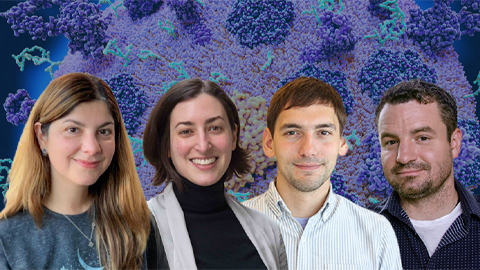
ASBMB members recognized as Allen investigators
Ileana Cristea, Sarah Cohen, Itay Budin and Christopher Obara are among 14 researchers selected as Allen Distinguished Investigators by the Paul G. Allen Family Foundation.
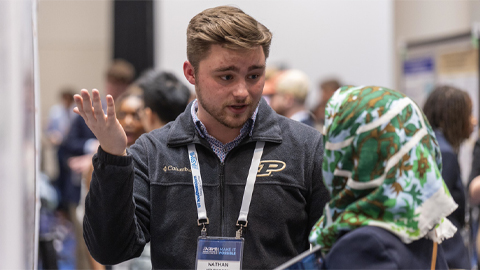
AI can be an asset, ASBMB educators say
Pedagogy experts share how they use artificial intelligence to save time, increase accessibility and prepare students for a changing world.
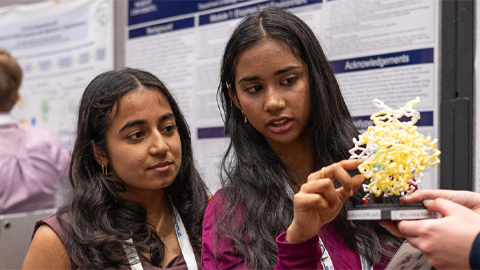
ASBMB undergraduate education programs foster tomorrow’s scientific minds
Learn how the society empowers educators and the next generation of scientists through community as well as accreditation and professional development programs that support evidence-based teaching and inclusive pedagogy.
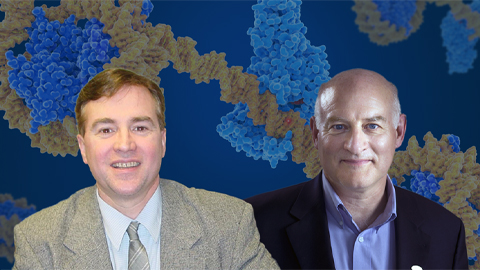
Honors for Gagna and Sundquist
Claude Gagna is being honored for the diagnostic tool he developed that uses AI to streamline diagnostics. Wesley Sundquist is being honored for his role in finding that HIV’s capsid was a target for treatment.

